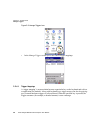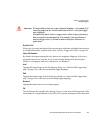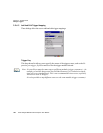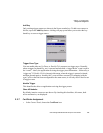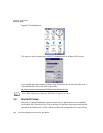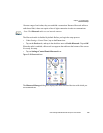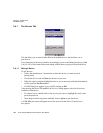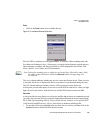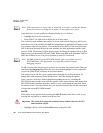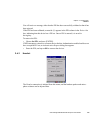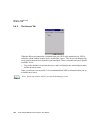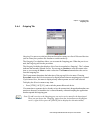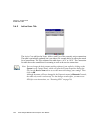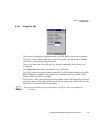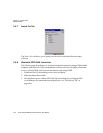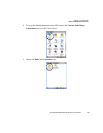
Chapter 5: Configuration
The Devices Tab
106 Psion Teklogix NEO Hand-Held Computer User Manual
Once the device’s service profiles are displayed in the Services list box:
• Highlight the service to be activated.
• Press [SPACE] or right-click to display the Activation menu.
The Activation menu contains four options: Activate, Authenticate, Outgoing, and Encrypt.
Once the service is successfully activated, the assigned port (if applicable) will appear in the
Port column of the Services list box. You can choose to use BSP or COM as the port name.
BSP is the latest Microsoft Bluetooth stack standard, but older applications assume serial
ports are COM. When using COM as the port name, the Bluetooth manager will try to find
and use a free port between COM7 and COM9. When using BSP as the port name, BSP2 to
BSP9 are available for use. The port is available as soon as it is activated.
To add a service to the Outgoing port, an active service must first be deactivated. Then you
can choose the Outgoing option from the Activation menu (highlight a service, right-click
or press the [SPACE] bar to display the Activation menu).
The Authentication and Encryption options can be changed only before activation. To
change these after activation, deactivate the service first, then change the options.
Once a service is activated, all the information regarding the service, including the
RFCOMM channel number, is saved in the registry. (Some remote devices may change their
RFCOMM channel numbers when they reboot, so your saved setting may not work when
the remote device is rebooted. In that case, you must deactivate the service and reactivate it
to detect the current RFCOMM channel.)
Set PIN
PINs can be set for each device by pressing the Set PIN button in the Devices tab, or you
can skip this step and try to connect to the device first.
• Highlight a device, click on the Set Pin button, and type the PIN.
Note: If the remote device is out of reach or turned off, it can take a considerable amount
of time for the Services dialog box to appear—it may appear to be frozen.
Note: The CH column shows the RFCOMM channel of the service if the service is
RFCOMM-based. This information is not generally needed except for
debugging purposes.
Important: The remote device must have authentication enabled, otherwise the PIN
authentication will fail.



